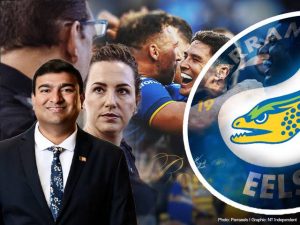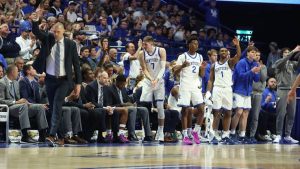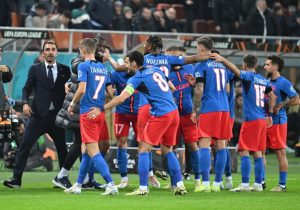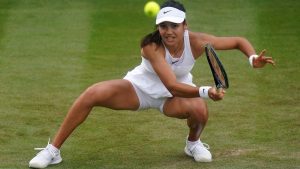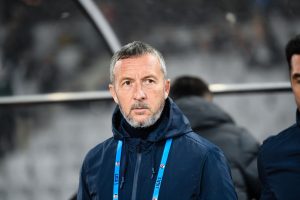
Black aces: 10 AHL players who could make an impact with the Canadiens
There are still several questions surrounding the NHL’s return-to-play plan, but there’s reason to believe that if the teams were to play in hub cities, they’d be doing so under a strict set of guidelines that restrict personnel movement. That means teams will have to bring a rather large contingent of players with them to safeguard against injuries and other unforeseen circumstances that would require an immediate replacement. Gary Bettman announced that teams would be restricted to 50 personnel, which doesn’t leave teams much wiggle room, but it should be enough to include a relatively large group of black aces.
Though the black aces concept is not new, given the AHL has cancelled the rest of its season, the proposed return to play presents an opportunity for several players who would have spent the rest of the season in Laval as the Rocket attempted to qualify for a berth in the Calder Cup Playoffs.
They’re no longer needed in the AHL, but they can be useful in the NHL in the Canadiens’ series against the Penguins. Let’s take a look at the possible black aces and their potential impact on the Canadiens. Unfortunately, given the Lahti Pelicans loaned Jesse Ylonen to the Rocket and his contract with the Canadiens only kicks in next season, he won’t be eligible for the play-in.
Cayden Primeau — goaltender
If there’s one player who has an opportunity to steal the playoff play-in show, it’s Primeau. Of course, that would mean the Canadiens would put their faith in someone other than Carey Price, which seems rather unfathomable given how little faith they’ve put in his most recent backups. But Primeau is different. He’s not slated to be a backup. He’s the heir apparent who happens to share a lot of similarities with Price.
I’ve been quick to point to the value of leaving Primeau in the AHL, especially since he struggled with consistency in his rookie season, but this is the type of scenario that would play out perfectly for a goaltending prospect of his stature. In the worst case, he gets to enjoy the view from the press box, though I’d argue that, based on the statistics, he’d present a better option to back up Price than Charlie Lindgren. It would also put a little pressure on Price, who, let’s face it, hasn’t dealt with very much competition in recent years.
If there was one constant in the Rocket’s season, it’s that Primeau provided the type of timely saves the Canadiens failed to receive from their starter. He finished the season by winning five of his final six starts, with an impressive .948 save percentage. There’s a world of difference between facing a shot from some guy called Sidney in the NHL and an AHL player, but I genuinely wouldn’t be surprised if Primeau managed to go on a healthy run if he’s handed the reins. It’s a big if, but it’s also the most important if on the team. Or perhaps it’s a matter of when rather than if.
This might not be the right time to play Primeau, but it’s certainly not too early to introduce him to high-stakes NHL hockey.
Xavier Ouellet — defenceman
The Rocket’s captain has a lot of things going for him. He shoots left-handed but has the ability to play on the right, as evidenced by his stellar performance alongside Jordie Benn on the third pairing a couple of seasons ago. Together, they controlled over 60 percent of the shots, 69 percent of the expected goals and, most ridiculously, 73 percent of the high-danger chances. There was a chemistry element at play on that pairing, but it’s enough to propose that Ouellet is still a legitimate option on the blue line, especially since he’s maintained, if not improved, his level of play since arriving in Laval.
Though Ouellet was playing in the top-six in Montreal when play was suspended, he would likely lose his spot to a healthy Victor Mete. And if the NHLPA is somehow able to convince the NHL to allow players like Alexander Romanov to suit up, Ouellet would get pushed further down the depth chart. Even though he played in only 39 games with Laval, Ouellet finished with nine goals, a top-10 result among defencemen in the AHL this season. Five of those goals were on the power play, connoting that he wouldn’t provide the same type of offensive impact in the NHL as he did in the AHL, but there’s more to his game than just offence.
Ouellet has served as a reliable general for Joël Bouchard as well.
Ouellet played upwards of 20 minutes every game, playing crucial minutes in crucial games. He also served as a defensive partner for the number of youngsters who made their way to Laval the last two seasons. He won’t have that burden in Montreal, and that should allow him to focus on his own game, but there’s still a leadership angle to consider. As the team captain, Ouellet was a welcoming committee, the head of human resources and the official party planner for the Rocket, making sure to invite all newcomers to dinner with various teammates. It was a rotating group of players, meaning he avoided any semblance of a clique in the locker room.
He could fulfill the same leadership role among the black aces, guiding the younger players through the process while captain Shea Weber focuses on the task at hand.
Noah Juulsen — defenceman
It was just one game, but for Juulsen, his return in what ended up as the final game of the AHL season represented so much more than the 22 shifts he played. It marked a successful return for a defenceman who had dealt with an unreasonable number of injuries in his young career, and more importantly, a return to normalcy for a young man who has known anything but.
He’s a man of few words, but his smile after the game told the story. He was elated to be back in action, even more so not to be dealing with any lingering side effects of the migraines he had been struggling with in previous months.
I’m not convinced Juulsen is ready to play in the NHL — he’ll need more time in the AHL to find his rhythm — but he shouldn’t be overlooked as an option on the right side of the defence if the opportunity arises. Despite the long list of injuries, Juulsen maintained a very high level of play in his time with the Rocket, serving as a conduit for offence from the defensive zone thanks to his ability to start the play and as a stalwart presence when defending.
At the very least, adding him to the black aces would be a nice reward for a player who has maintained a positive attitude in an incredibly frustrating situation.
Cale Fleury — defenceman
Something curious happened when Fleury made his NHL debut: He suddenly became a hitting machine. That’s not to say his game was void of physical play in the AHL, but there was a significant uptick in hits once Claude Julien placed him in the Canadiens lineup.
And that was a questionable choice. Or perhaps it was a survival mechanism, seeing as Julien often pointed to Fleury’s physical presence as one of the main reasons he made the team. Survival aside, going out of his way to throw hits led to several instances when Fleury abandoned his defensive coverage, which, in turn, led to fairly poor underlying numbers.
If he can focus on defensive positioning rather than on physical play, Fleury should be able to maintain Julien’s respect while improving his results. In lieu of big hits, Fleury can support the rush from the back end, something we saw with regularity with the Rocket and few times in the NHL. He shouldn’t abandon his physical game, but a little more attention to detail, as well as better timing, would serve him well in the race for a third-pairing position.
Jake Evans — centre

Consider it a trial by fire for Evans, who has defied expectations at every level in his career.
Technically, Evans finished the season with the Rocket, as he was sent to the minors after the suspension of the NHL season. But regardless of the logistics involved in the decision, he’s all but guaranteed a position in the lineup. Or, at the very least, he’ll be given the inside track for the coveted role as fourth-line centre.
He won’t blow anyone away with his style of play, but that’s part of what makes him a good player because the same applies to his mistakes; they’re few and far between, making him a perfectly boring player who can provide a good defensive presence as well as chipping in with offence whenever the opportunity arises, an aspect of his game that’s underrated. Despite playing only 51 games, Evans managed to lead the Rocket in scoring last season with 14 goals and 24 assists.
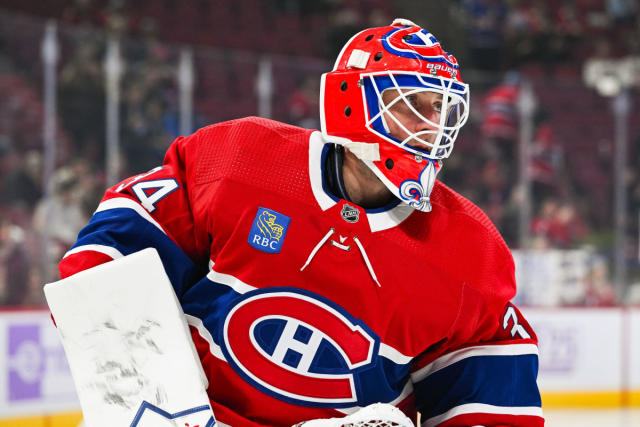
Charles Hudon — left wing
Justin Bailey, Reid Boucher, Garry Mayhew and Josh Norris.
They are the only players who can claim they scored more often than Hudon last season, though all four of them played more games in the AHL due to Hudon’s call-up.
Now, the obvious counterpoint to Hudon’s goal-scoring rate in the AHL is his underwhelming production in the NHL, but in his case, the devil is in the details. Over half of Hudon’s 27 goals this season were scored on the power play. He was a consistent scoring threat from the right circle because of his great one-timer, which combines a quick release with excellent accuracy. If the Canadiens hope to tap into his offensive potential, they’ll need to place him at the top of the right circle and give him plenty of shooting opportunities.
He was also given a healthy dose of minutes in Laval, something that’s unlikely to occur in Montreal given his tweener status, but he was conducive to scoring at a better rate than almost every other player. He won’t produce much on the fourth line in the NHL, but if there’s a significant injury in the top nine, he’s probably the best in-house option to absorb the minutes.
Speaking of producing on the third line, one of the most interesting storylines in Laval this season was how quickly Hudon and Jesperi Kotkaniemi clicked. Of Kotkaniemi’s 12 assists, eight were on goals by Hudon. Most of their connections occurred on the power play, but as the season unfolded, their 5-on-5 production increased significantly. Getting off on the right foot will be crucial in the five-game series, leaving the Kotkaniemi-Hudon duo as an interesting option for Julien.
Jesperi Kotkaniemi — centre
Kotkaniemi could be considered a wild card if only because he’s still nursing what was originally called a “season-ending injury,” but because this season will extend well into the summer, players like Kotkaniemi have an opportunity to return to play. It should be noted that this is highly unlikely; Kotkaniemi has not been cleared to take contact to his injured spleen and may not receive that clearance for another few months. But let’s look at the possibility regardless.
While in Laval, Kotkaniemi didn’t just produce, though his 13 points in 13 games were certainly noteworthy. More importantly, he found a renewed sense of confidence, helped along by the numerous hours he spent with Bouchard in the video room. If Kotkaniemi is healthy enough to play, he should be slotted back into his original role, a third-line centre who is given advantageous zone starts and sheltered competition.
It’s rather easy to lose sight of just how young Kotkaniemi is. There’s a very long list of star players who took a few years to find their rhythm in the NHL, and many spent time in the AHL. There’s also a rather long list of highly touted players who failed to find their place in the NHL, and many could have used a confidence-boosting stint in the AHL. As has been the case throughout most of his career, Kotkaniemi is ahead of the curve in that respect.
It remains to be seen if it will pay off, but a playoff series or two is the exact type of valuable experience Kotkaniemi needs.
Ryan Poehling — centre/wing
While the seven aforementioned players are essentially locks, the same can’t be said for Poehling. Statistically speaking, he probably doesn’t merit inclusion as a black ace, but the ramifications of leaving him aside outweigh any notion of a meritocracy.
Consider the Canadiens chose to make life very difficult on Poehling by recalling him on two occasions, neither of which was on the heels of a solid performance in the AHL. Given that, the optics of leaving him behind would be awful, but thankfully, the Canadiens don’t have a difficult decision to make. Unlike earlier in the season, this is the perfect time to remind Poehling of the NHL perks that lie just past the AHL hill.
If the situation does arise, Poehling’s versatility will come into play. He prefers to play centre, but he’s comfortable on the wing, where his playmaking tends to shine a little brighter. That alone gives him a decent chance at securing a fourth-line role.

